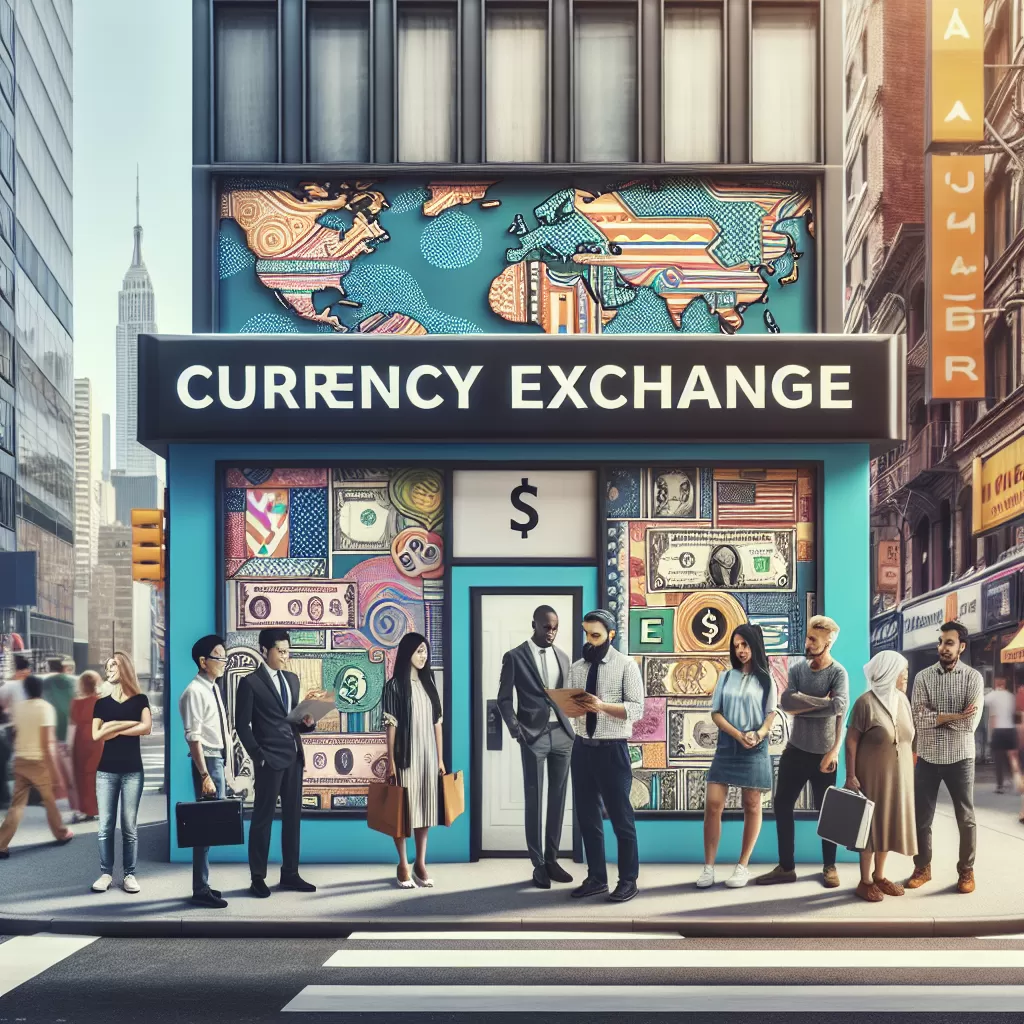Where I Exchange Foreign Currency
Follow Currency Mart April 10, 2024
Where to purchase Foreign Currencies?

Introduction
Exchanging foreign currency may seem like a labyrinth of rates, charges, and overwhelming choices. However, knowing the right places to exchange your money can help demystify the process. As the Guardian of currency exchange, I will guide you through the top choices you have when dealing with this vital aspect of international travel, business, or investing.Banks
Banks often serve as the primary stop for many individuals needing to exchange currency. They offer reliable services but may not always carry the best rates in comparison to other alternatives. They charge a margin above the interbank exchange rate, which is the rate banks use when trading currencies with one another. Plus, there can be additional service fees, which can become significant especially for larger transactions. Despite these costs, many prefer banks for their convenience and perceived security.Currency Exchange Bureaus
Currency exchange bureaus are a common sight in airports, city centers, and other major areas frequented by tourists. They offer accessibility and convenience, especially for travellers in need of local currency. But this convenience often comes with a price: their rates can be significantly higher than those offered by banks. It is always prudent to compare the rates offered by various exchange bureaus before making a decision.Online Money Exchange Platforms
The rise of technology has brought about more options for exchanging currency, one of which is online money exchange platforms. Several companies provide this service, offering competitive rates compared to traditional banks and exchange offices. They often take a smaller fee, resulting in more cost-effective transactions for users. Moreover, they offer the convenience of exchanging your currency without leaving your home, and having it delivered to your doorstep.Peer-to-Peer (P2P) Currency Exchange
Peer-to-peer currency exchange services are a relatively recent development. Rather than exchanging money through banks or bureaus, you transact directly with another individual who needs the currency you have and vice versa. The platform only charges a small fee for arranging the exchange, providing significant savings for both parties.ATMs
ATMs are yet another method to exchange currency. Nowadays, most international banks allow you to withdraw money in the local currency from an ATM in a foreign country. Be aware that foreign ATM fees, currency conversion fees, and the bank’s exchange rate can add up. However, in some cases, these fees may still be lower than at other exchange places.Prepaid Travel Cards
Prepaid travel cards are a convenient alternative for travellers. You load your desired amount onto the card in the currency of your destination country. As a result, the exchange rate is locked in at the time of loading, thus protecting you from future fluctuations.Conclusion
Deciding where to exchange your money depends on your specific needs, circumstances, and priorities. Also, it’s always wise to keep an eye on the exchange rate trends if you can be flexible with the timing of your exchange. Remember that the most convenient service might not always offer the best value for your money. Whether you choose to go with a bank, currency exchange bureau, online platform, peer-to-peer platform, ATM, or prepaid travel card, it is important to understand each approach's pros and cons. It ultimately comes down to striking the right balance between convenience and cost-effectiveness. That is the real secret to navigating the vast realm of currency exchange.
Where to purchase Foreign Currencies?